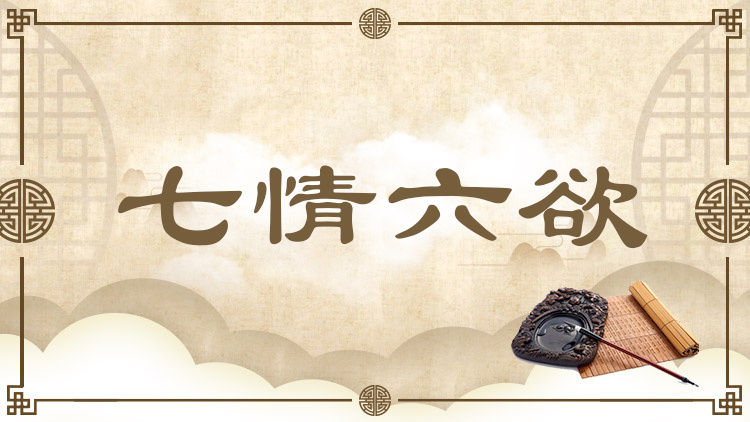Seven Emotions and Six Desires

七种情感与六种欲望。“七情”之说出自《礼记·礼运》,是指喜、怒、哀、惧、爱、恶、欲等七种人的情感。“六欲”之说最早见于《吕氏春秋·贵生》,指人欲生、恶死以及耳、目、口、鼻等器官对于声音、颜色、滋味、香味的欲求。后人将“七情”与“六欲”并举,泛指人的各种情感与欲望。“七情六欲”是人天生自然的本能,需要获得适当的抒发或满足,但同时也要有所节制。
This refers to various human emotions and desires. The term "seven emotions" comes from The Book of Rites, referring to happiness, anger, sadness, fear, love, hatred, and desire. The term "six desires" first appeared in Master Lyu's Spring and Autumn Annals, referring to human desire for life, desire against death, and the desires of human organs such as ears, eyes, mouth and nose for sound, color, taste and aroma. Later, the term "seven emotions and six desires" came to be used to describe people's emotions and desires in general. Such emotions and desires, being naturally born with people, should be released or satisfied as appropriate. But they should not become excessive.
引例 Citations:
◎何谓人情?喜、怒、哀、惧、爱、恶、欲,七者弗学而能。(《礼记·礼运》)
什么是人的情感?欢喜、愤怒、哀伤、恐惧、喜爱、厌恶、欲求,这七者是人不需要学习就会的。
What are human emotions? They are happiness, anger, sadness, fear, love, hatred, and desire which are naturally born with people. (The Book of Rites)
◎所谓全生者,六欲皆得其宜也。(《吕氏春秋·贵生》)
所谓保全生命,是指人的六种欲望都得到适当的安顿。
Preserving life means satisfying people's justified desires. (Master Lyu's Spring and Autumn Annals)
推荐:教育部 国家语委
供稿:北京外国语大学 外语教学与研究出版社
责任编辑:钱耐安





